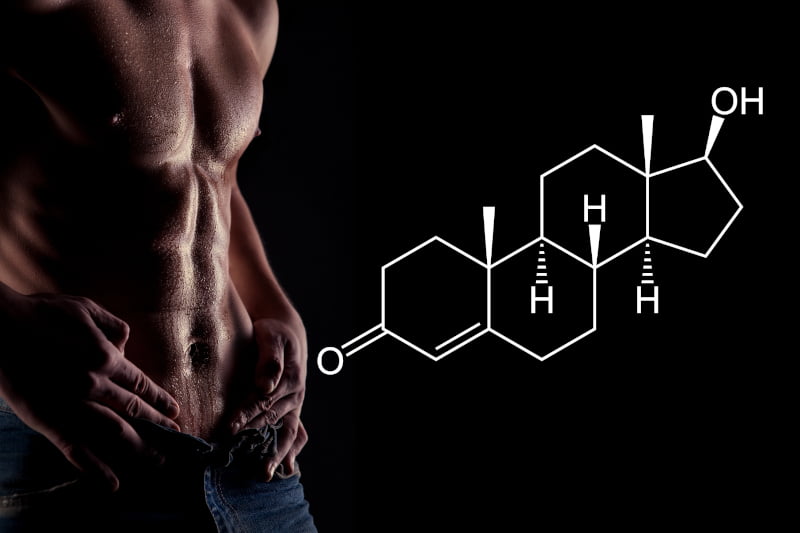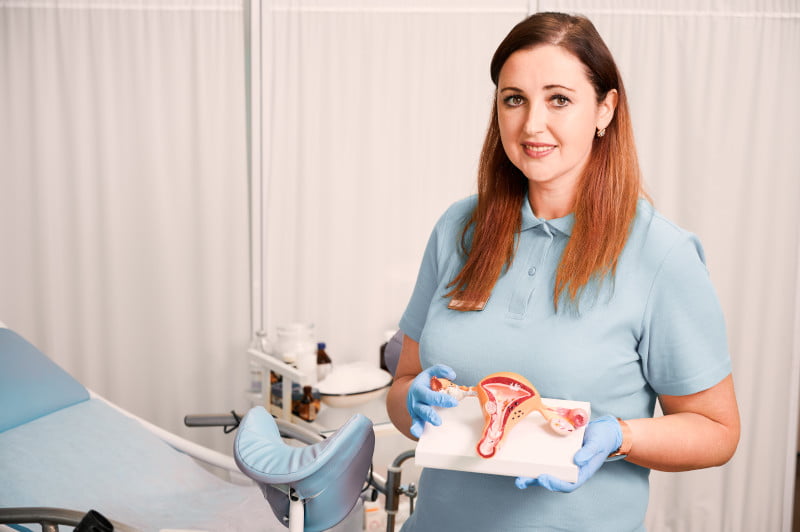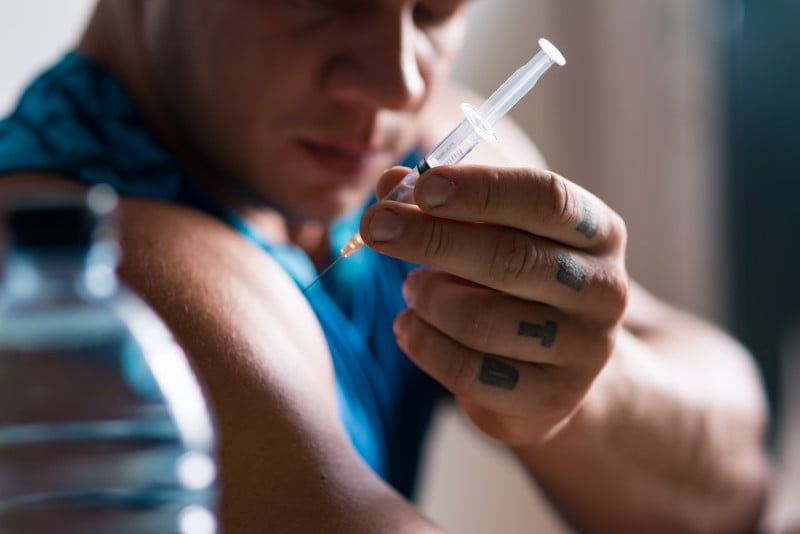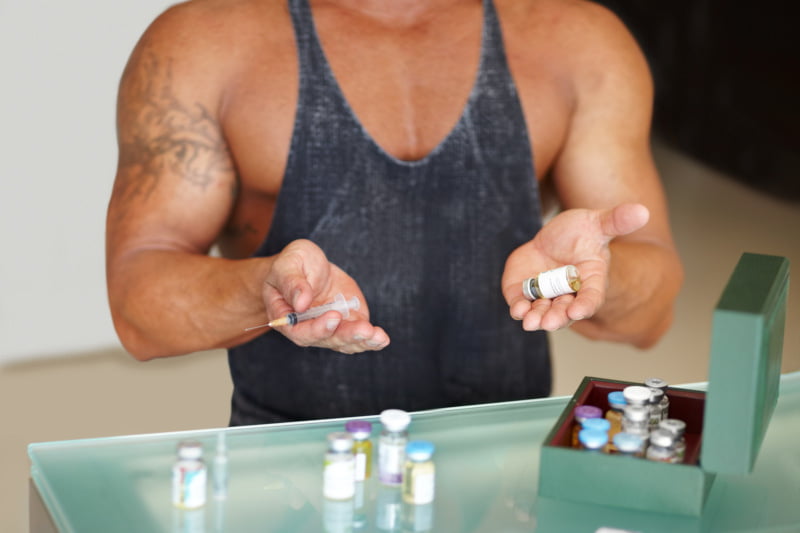Humans and other animals produce testosterone, an androgenic hormone essential to many physiological functions.
This article covers all aspects of T, including what it is, its production, physiological effects, and health implications.
What Is Testosterone and What Is Its Role in Your Body?
Testosterone is the primary sex hormone in both men and women. It plays a significant role in increasing bone & muscle mass, the growth of body hair, and other secondary sexual characteristics.

Testosterone is also responsible for the development of both female & male internal and external reproductive organs during fetal development.
Testosterone controls the luteinizing hormone and follicle-stimulating hormone secretion.
Where Does Testosterone Come From and Where Is It Made?
The gonads primarily produce testosterone.


The Leydig cells in the gonads, which manufacture and secrete T, are controlled by the hypothalamus and pituitary gland in the brain.
The adrenal glands also create minor amounts of T in both sexes.
Where Does Female Testosterone Production Occur?
In women, the gonadotrophin-releasing hormone causes the ovaries to make estrogen and progesterone.


Multiple organs in women produce testosterone. Numerous precursors are produced in the ovaries and adrenal glands.
Androstenedione, which turns to estrone, is the primary precursor in the ovary.
Benefits of Testosterone
Here are the known benefits of testosterone:
- Higher levels of energy
- Enhanced sexual arousal and capability
- Enhanced physical strength
- Fat loss(1)
- Improved mental performance
- Stress reduction and mood elevation
- Reduced risk of death and heart attack(2)
SIDE NOTE: Testosterone is critical in red blood cell production. Low quantities outside the normal range can increase the risk of heart-related ailments.
What if You Have Too Much or Too Little Testosterone?
Too much testosterone can cause early puberty and infertility(3) in both males and females.
The body may produce too much testosterone due to ovarian cancer, congenital adrenal hyperplasia, and androgen resistance, among others.


Adult males who take anabolic steroids (manufactured androgenic hormones) for extended periods may develop breasts, lose their libido, and become infertile.
Low testosterone levels in adult men may cause the loss of body hair(4), a reduction in muscular mass, and wrinkled, "parchment-like" skin.
What Can Impact the Levels of Testosterone in Your Body?
A man's natural T production declines as he ages. Stress and long-term medical issues can also lower T production.
A few of these are:
- AIDS
- Kidney disease
- Alcoholism
- Cirrhosis of the liver
How Can You Boost Your Testosterone?
The following advice will help you increase T:
- Adopt a balanced diet
- Exercise regularly
- Get adequate rest
- Avoid stress
Using Testosterone Boosters and Supplements
Androgen drugs or prescription testosterone is a suggested treatment for low T. One of the approved forms of medical testosterone by the United States Food and Drug Administration (FDA) is methyltestosterone.


The FDA has stated that prescription testosterone should only be prescribed for well-defined causes and should not be used to treat late-onset hypogonadism.
Testosterone Replacement Therapy (TRT)
If your health and quality of life are negatively impacted by low T, you may be a candidate for TRT.
Stimulating Testosterone Production Naturally
The evidence consistently supports the positive role of lifestyle factors in controlling and elevating T levels, like:
- Improving the composition of your body
- Reducing stress
- Regular physical activity and resistance training
- Proper rest and recovery
- Enhancing the quality of your food and nutrition
Frequently Asked Questions (FAQs)
Where Do Men Get Most of Their Testosterone?
Men's bodies need T for several physical, mental, sexual, and metabolic processes. T is a hormone produced mainly in the testicles but also in small amounts by the ovaries and adrenal cortex.
What Triggers Testosterone and Sperm Production?
The pituitary and hypothalamus regulate the amount of T the testes make and secrete. The pituitary gland signals the hypothalamus to release gonadotrophic chemicals (follicle-stimulating and luteinizing hormones). The synthesis of T is stimulated by the luteinizing hormone (LH).
What Causes Low Testosterone (Testosterone Deficiency)?
Your testicles don't create enough testosterone if you have low testosterone (male hypogonadism). It could be brought on by several diseases or traumas, including those that impact your testicles, pituitary gland, or hypothalamus.
How Do I Know if My Hormone Levels Are Too High or Low?
The normal range of T concentration in the blood is 300 to 1,000 nanograms per deciliter (ng/dL). It is considered low testosterone when T levels are below 300 ng/dL. You can check your testosterone level by using a serum testosterone test.
How Is Testosterone Controlled?
Although blood levels of testosterone are typically highest in the morning and decline afterward, production is strictly regulated to maintain appropriate levels. The pituitary and hypothalamus regulate the quantity of testosterone that the testes generate.
Conclusion
The hormone T has a significant impact on the physical, emotional, and behavioral health of males.
Healthy lifestyle changes through nutrition, exercise as well as sufficient recovery might help stem the flow of "male menopause."


Avoid anabolic steroids, and always consult with your doctor first! They can explain your options for TRT or other remedies for abnormally low or high testosterone.
- Traish, Abdulmaged M. “Testosterone and weight loss: the evidence.” Current opinion in endocrinology, diabetes, and obesity vol. 21,5 (2014): 313-22. doi:10.1097/MED.0000000000000086↩
- Kaur, Hargun, and Geoff H Werstuck. “The Effect of Testosterone on Cardiovascular Disease and Cardiovascular Risk Factors in Men: A Review of Clinical and Preclinical Data.” CJC open vol. 3,10 1238-1248. 17 May. 2021, doi:10.1016/j.cjco.2021.05.007↩
- Patel, Amir Shahreza et al. “Testosterone Is a Contraceptive and Should Not Be Used in Men Who Desire Fertility.” The world journal of men's health vol. 37,1 (2019): 45-54. doi:10.5534/wjmh.180036↩
- Kische, Hanna et al. “Sex Hormones and Hair Loss in Men From the General Population of Northeastern Germany.” JAMA dermatology vol. 153,9 (2017): 935-937. doi:10.1001/jamadermatol.2017.0297↩
